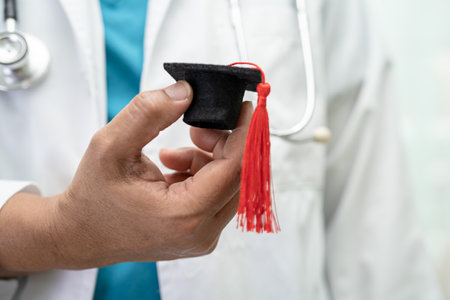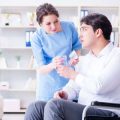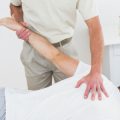Understanding Stroke Rehabilitation within the NHS
Stroke rehabilitation is a critical phase in the journey to recovery following a stroke. Within the NHS across England, these services are designed to help individuals regain independence, improve their quality of life, and reduce the risk of further complications. Rehabilitation involves a multidisciplinary approach, often including physiotherapists, occupational therapists, speech and language therapists, psychologists, and specialist nurses who work together to tailor care plans to each patient’s unique needs. The process typically begins in hospital settings and can continue through community-based services or at home, depending on individual circumstances. Accessing timely and appropriate rehabilitation is essential for optimal recovery, as early intervention can significantly enhance outcomes. Understanding how these services are structured within the NHS ensures that patients and their families can make informed decisions and advocate effectively for the support they require throughout their rehabilitation journey.
2. Initial Steps: From Hospital to Community Care
After experiencing a stroke, the journey through the NHS begins with acute hospital care. In England, most stroke patients are first admitted to a specialist stroke unit within an NHS hospital, where a multidisciplinary team provides immediate medical treatment and assessment. During this crucial phase, the focus is on stabilising the patient, preventing further strokes, and initiating early rehabilitation.
Acute Hospital Care
The initial days post-stroke typically involve:
- Comprehensive assessments by doctors, nurses, physiotherapists, occupational therapists, and speech and language therapists
- Development of a personalised care plan based on the patient’s needs
- Early mobilisation and therapy interventions to promote recovery
- Family involvement in planning and decision-making
Discharge Planning
Discharge from hospital is carefully coordinated to ensure ongoing support. The hospital team works alongside community health professionals to create a seamless transition from inpatient care to home or another setting. A discharge coordinator or stroke nurse often guides both patients and families through the process.
Typical Discharge Pathways
| Patient Needs | Discharge Destination | Follow-up Services |
|---|---|---|
| Mild impairment | Home | Community rehabilitation team (outpatient therapy, GP follow-up) |
| Moderate impairment | Home with support or intermediate care facility | Domiciliary rehabilitation (home visits), social services input |
| Severe impairment or complex needs | Nursing home or specialist rehabilitation centre | Intensive multidisciplinary rehabilitation, continued reviews |
Transition to Community or Outpatient Rehabilitation
The NHS ensures that every patient has access to suitable follow-up care after leaving hospital. Depending on individual circumstances, this may include:
- Outpatient appointments at local NHS hospitals or community clinics for ongoing therapy and review
- Domiciliary rehabilitation where therapists visit the patient’s home to provide tailored support
- Access to Early Supported Discharge (ESD) schemes in some regions, which help patients continue their recovery at home with intensive therapy and nursing input shortly after hospital discharge
- Liaison with GPs and other community health teams for long-term management and prevention of further strokes
This structured approach ensures continuity of care, empowers patients and families during recovery, and maximises the chances of regaining independence after a stroke within the NHS framework across England.
![]()
3. How to Access Stroke Rehabilitation Services
Navigating stroke rehabilitation within the NHS can seem daunting, but understanding the process makes it much more manageable for both patients and carers. Here is a clear, step-by-step guide to accessing these vital services across England.
Step 1: Initial Assessment and Referral
The journey typically begins in hospital, where stroke specialists assess each patient’s needs. If you or your loved one is ready for rehabilitation, a member of your healthcare team—usually a consultant, nurse, or therapist—will make a formal referral to local stroke rehabilitation services. This can include inpatient units, community teams, or outpatient clinics depending on your specific requirements and location.
Step 2: Understanding Eligibility Criteria
To be eligible for NHS-funded stroke rehabilitation, you must have a clinical diagnosis of stroke and require ongoing therapy to aid recovery. The severity of impairment, potential for improvement, and individual goals are considered by the multidisciplinary team. Services are available for adults of all ages; however, the precise offer may vary regionally due to local commissioning arrangements.
Step 3: Waiting Lists and Service Allocation
Once referred, you may be placed on a waiting list based on urgency and clinical need. The local NHS team will contact you directly to arrange an initial assessment, either at home or in clinic. They will discuss your goals, plan tailored interventions, and coordinate with social care if necessary.
Key NHS Contacts and Support
If you are unsure how to proceed at any stage, reach out to your GP or hospital-based stroke coordinator—they are often the first point of contact for advice. You can also contact your local Integrated Care Board (ICB) or NHS England Customer Contact Centre for up-to-date information about services in your area.
Support for Carers
Carers play a crucial role throughout this process. If you need guidance or emotional support as a carer, ask the hospital’s Patient Advice and Liaison Service (PALS) or explore national charities such as the Stroke Association for resources tailored specifically to carers’ needs.
By following these steps and making use of available contacts, patients and carers can access the right stroke rehabilitation services efficiently within the NHS system across England.
4. Types of Rehabilitation Available and What to Expect
After a stroke, accessing the right rehabilitation services is crucial for recovery. Across England, the NHS offers a range of stroke rehabilitation options tailored to each patient’s individual needs. Understanding these services can help patients and their families make informed decisions and set realistic expectations throughout the rehabilitation journey.
Key Stroke Rehabilitation Services
| Service Type | Description | What to Expect |
|---|---|---|
| Physiotherapy | Focuses on improving movement, balance, and coordination. Often used to regain strength in affected limbs or relearn basic mobility skills. | Regular sessions involving exercises, stretches, and sometimes specialist equipment. Goals are set with your physiotherapist and progress is reviewed frequently. |
| Occupational Therapy | Helps patients relearn daily activities such as dressing, eating, or using household objects. Aims to maximise independence at home or work. | Practical training in real-life scenarios, advice on adaptive equipment, and support with home modifications if needed. |
| Speech and Language Therapy | Supports those experiencing difficulties with speech, understanding language, reading, writing, or swallowing. | Personalised exercises and communication strategies; may involve one-to-one or group sessions depending on need. |
| Psychological Support | Aims to address emotional wellbeing and mental health following a stroke. | Counselling, peer support groups, or referral to clinical psychologists if required. Emotional adjustment is an important part of recovery. |
| Community Rehabilitation Teams | Multidisciplinary teams that provide ongoing support in your home environment after hospital discharge. | Coordinated care from different professionals, tailored home visits, and regular reviews of progress. |
How Services Are Delivered Across England
The NHS provides both inpatient (hospital-based) and outpatient (community-based) rehabilitation depending on each person’s needs. Many stroke survivors start with intensive therapy in hospital, then transition to community teams or outpatient clinics as they recover. Access may vary slightly by region but every patient should expect a personalised care plan, regular goal-setting sessions, and ongoing reviews led by experienced stroke specialists.
Your Rights as an NHS Patient
You have the right to be involved in decisions about your rehabilitation plan. The NHS strives for clear communication—feel free to ask questions or request information in formats that suit you best. If you feel your needs aren’t being met, you can speak with your care coordinator or the local Patient Advice and Liaison Service (PALS).
5. Overcoming Barriers: Common Challenges and Solutions
Accessing stroke rehabilitation services within the NHS can sometimes feel daunting, especially when you or your loved one are already dealing with the aftermath of a stroke. Here, we take an honest look at typical obstacles that patients may encounter across England, and share practical advice to help you navigate them effectively.
Understanding Wait Times and Service Availability
One common challenge is waiting times for specialist appointments or therapy sessions, which can vary significantly by region. Some areas may have more resources than others, leading to potential delays. To help manage this:
- Ask your GP or hospital team about expected timelines and whether interim community support is available.
- If you notice any deterioration while waiting, contact your healthcare provider promptly as urgent needs may be prioritised.
Navigating Referrals and Communication
The NHS system relies on referrals from GPs or hospital consultants to access many rehabilitation services. Miscommunication or administrative errors can occasionally delay this process. Patients and carers are encouraged to:
- Keep written records of all appointments, referrals, and contacts.
- Follow up politely but persistently with your GP surgery or therapy provider if you have not received information within a reasonable time frame.
Transportation and Accessibility Issues
Getting to and from rehabilitation centres can pose difficulties, especially for those with mobility issues or who live in rural areas. Solutions include:
- Enquiring about patient transport services through your local NHS Trust.
- Contacting charities such as Stroke Association for advice on travel grants or volunteer drivers.
Cultural and Language Barriers
Diverse communities across England sometimes face additional challenges in understanding medical information or accessing culturally appropriate care. If this affects you:
- Ask for interpreter services—these are free in the NHS.
- Seek out community groups or advocacy organisations familiar with your background; they can offer guidance tailored to your needs.
Mental Health and Emotional Support
Coping with the emotional impact of a stroke can make it harder to seek help proactively. Don’t hesitate to reach out:
- Your GP can refer you to counselling or mental health support, often available locally or online.
- The Stroke Association’s helpline offers confidential advice and emotional support for patients and families across England.
Tackling these barriers head-on, using available resources, and staying informed will help ensure that you receive the stroke rehabilitation support you deserve within the NHS system.
6. Patient Support, Advocacy, and Community Resources
Recovering from a stroke is not only a medical journey but also an emotional and social one. Across England, stroke survivors and their families can access a wide range of support services beyond the NHS, designed to help them navigate challenges and foster long-term recovery.
Support Groups
Local and national stroke support groups play a vital role in connecting survivors with others who have had similar experiences. Organisations such as the Stroke Association run group meetings throughout England, offering practical advice, peer support, and opportunities for social interaction. These groups often hold regular sessions—both in-person and virtually—to ensure inclusivity for those with mobility or transport difficulties.
Patient Advocacy Organisations
There are several patient advocacy organisations dedicated to representing the interests of stroke survivors. The Stroke Association, Different Strokes, and Headway are among the most prominent in the UK. They provide resources on navigating NHS services, understanding your rights as a patient, and accessing rehabilitation programmes. Many also offer helplines staffed by trained professionals who can provide guidance tailored to individual circumstances.
How Advocacy Can Help
Advocacy services can support you in communicating with healthcare providers, understanding care plans, and ensuring your voice is heard during decision-making processes. They may also assist with appeals or complaints if you encounter barriers within the system.
Community-Based Resources
Many local councils across England collaborate with charities to offer additional resources such as home adaptation grants, accessible transport schemes, and carer respite services. Community health teams can signpost you to these opportunities based on your postcode and individual needs.
For Carers and Families
The journey after a stroke affects not just the survivor but their loved ones too. Carers Trust and other local carer networks offer specialised support including counselling, training workshops, and practical advice for family members looking after someone post-stroke.
No matter where you are in England, tapping into these networks can make a significant difference in your recovery journey—providing reassurance, empowering informed choices, and helping you feel less isolated as you move forward.
7. Tips for Making the Most of NHS Stroke Rehabilitation
Maximising the benefits of stroke rehabilitation within the NHS requires a proactive approach from both patients and carers. Here are some practical tips to help you get the best possible outcomes during your recovery journey across England.
Be Actively Involved in Your Rehabilitation
Take an active role in your care by attending all scheduled appointments and participating fully in therapy sessions. If you have questions about any aspect of your treatment, don’t hesitate to ask your therapists or healthcare team. Remember, understanding your rehabilitation plan can empower you to achieve better results.
Communicate Openly with NHS Teams
Effective communication is essential for successful rehabilitation. Keep your care team informed about any changes in your symptoms or concerns you may have. Don’t be afraid to discuss what’s working well and what isn’t—your feedback helps tailor therapy to meet your specific needs. Carers should also feel encouraged to share their observations and ask for guidance when needed.
Set Realistic and Achievable Goals
Work with your NHS stroke rehabilitation team to set clear, achievable recovery goals. These might include improving mobility, regaining independence in daily activities, or enhancing communication skills. Setting realistic targets ensures steady progress and keeps motivation high throughout the rehabilitation process.
Practical Steps for Patients and Carers
- Stay organised: Keep a diary of appointments, exercises, and progress notes to monitor achievements and identify areas needing attention.
- Access local support: Make use of community services such as stroke clubs or peer support groups available across England through the NHS or local charities.
- Seek additional resources: Ask your clinical team about online tools or printed materials that could aid your home exercises and understanding of stroke recovery.
Remember: Recovery Is a Journey
The path to recovery after a stroke can vary greatly between individuals, but by staying engaged, communicating openly, and setting realistic goals, you can make the most of the NHS rehabilitation services available across England. Both patients and carers play vital roles in this process—working together with NHS teams will give you the strongest foundation for ongoing progress.


